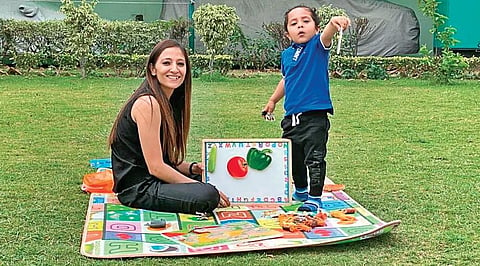

Educational institutions were the first ones to close with the onset of COVID-19 cases in India. Many students immediately signed up for online classes to fulfill their daily learning needs, and this trend has suddenly brought to fore the rising importance of the edtech industry.
"At BYJU’S, we have received an overwhelming response from the student community, with over six million new students accessing the app in March alone," informs Mrinal Mohit, COO, Head of Sales & Marketing Think & Learn Pvt Ltd (BYJU'S).
"Earlier, students used to spend 2-3 days per week on the platform, but because of the lockdown, they are using the platform on a daily basis. We have witnessed a 200 per cent surge in the overall engagement on the app."
This shows that with schools still shut and other learning sources being unavailable, digital adoption has increased. “There is a big behavioral shift in the parents’ mindset towards learning online, as they witness their kids benefiting from it, and seen EdTech serve as an enabler in their growth,” adds Mohit.
Online classes, not a game
But online classes pose its own set of challenges. One being: the restriction in interaction between the teacher and the pupil, as Snehil Manohar Singh, who teaches History, Geography and English to Classes 9 and 10 at Amrit Commerce Classes, points out.
While he has opted for online classes, especially when the number of students is high, he has observed a few roadblocks. "It takes education away from students who come from disadvantaged backgrounds as not everyone has equal access to Internet. Then, although kids are widely held to be more tech savvy than adults, there is always the exception. Assessment over a digital platform vastly varies from physical assessment," says Singh.
Agreeing with Singh is George Stephen from St Charles I/C, Sardhana Meerut, who teaches around 352 students online. "Indian students are not trained to be taught online. Many don’t own a smart phone, especially those from economically poor backgrounds. Buying an Internet pack is a common hassle. Moreover, these students often struggle to get a proper Internet connection. Even teachers are not used to teaching online. They are trained to teach in classrooms using the blackboard. Teaching on a mobile phone gets very difficult as how to hold the phone, and it becomes a problem to concentrate on the topic they are trying to teach," says Stephen.
Parents and teachers:A joint effort
In these unprecedented times, teachers and parents are putting their best foot forward to uphold the value of education.
Prabhjot Singh Khurana, French Teacher at Alliance Française de Delhi, notes that discussions during video sessions, interactive online games like Kahoot, screen sharing, tests conducted through customised portals and homework submission platforms, are some of the tools employed in favour of a seamless learning experience. "While teachers adapt and evolve their methodology to the online world, parents must continue to be supportive to help pull out all stops,' Khurana adds.
Chamneth Angmo uses WhatsApp and email to teach her students. This Nursery class teacher in Ladakh makes videos and narrates stories by using posters to describe the themes of poems. Angmo makes sure that the lessons are short, interesting and funny.
"You need to keep things interesting, especially when teaching kids. I use props such as posters, hand puppets and soft toys to narrate stories. However, since the classes are online, parents play a crucial role to make it successful and interactive. I can guide the kids, but only the parents can physically help them," says Angmo, who has 30 students under her wing, one of whom hasn’t been able to enroll for the online classes as Internet connection in his hometown is quite dodgy.
Dehradun-based Deepshikha Laleria, a banker by profession, ensures her children stay in touch with their studies as the school has no online classes. "My evenings are dedicated to teaching Vivan and Vartika. We revise what has been taught and follow the syllabus. Once done, they are free to dabble with whatever excites them. Both the kids love painting and dancing, and since they are not able to attend their classes, they practice amongst themselves and try out new things by watching videos online," says Laleria.
Many parents, like PR Professional Veta Ratra, are using this time to kickstart to their children’s education. "My son Sarav is just two, and it’s impossible to make him sit and concentrate on one thing. I use a lot of educational boards to teach him the names of animals, fruits, vegetables, means of transport, etc. I also use Alexa to help him learn rhymes. It is very important for a child to be independent in terms of handling his/her own stuff, and these things must be taught at this age itself," shares Ratra.